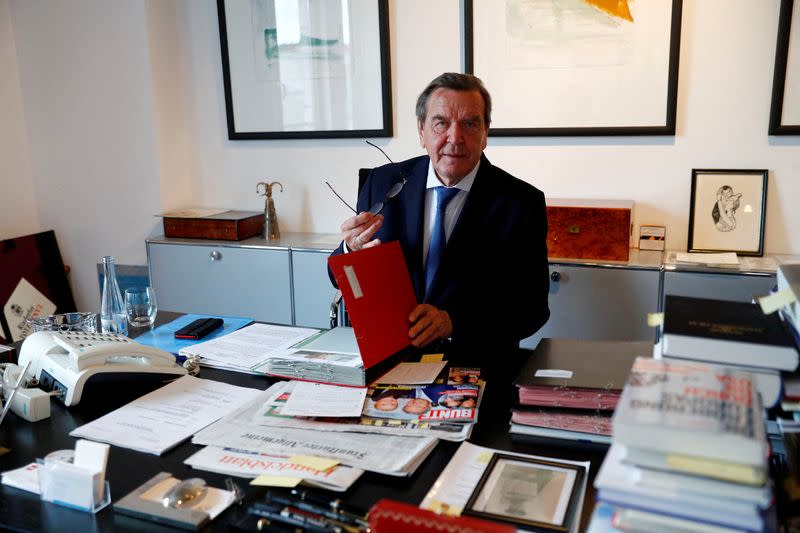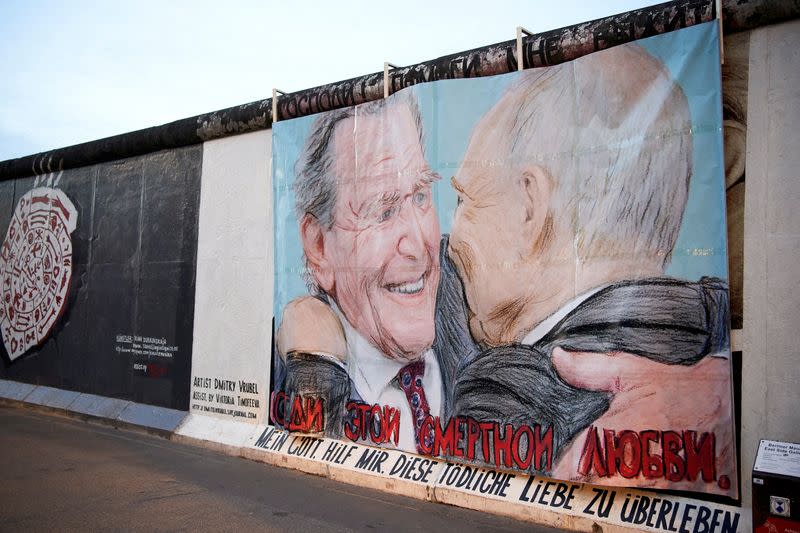In This Article:
By John O'Donnell and Christoph Steitz
FRANKFURT (Reuters) - Gerhard Schroeder has backed off from taking a top role at Russian energy giant Gazprom, dealing a setback to Germany's gas lobby as it seeks to keep the energy lifeline from Russia open.
The former German chancellor played a critical role in establishing the energy bond between the countries and defending it over two decades.
Earlier this month, following a barrage of criticism, Russia's state-owned oil company Rosneft said Schroeder was stepping down from its board.
On Tuesday, shortly after the European Parliament had urged his blacklisting, Schroeder said he would not take a nomination to Gazprom's supervisory board. Germany had also closed Schroeder's taxpayer-funded office amid a public outcry over Russia ties.
It marks the end of a controversial career that had seen him forge a friendship with Russian President Vladimir Putin.
Putin underscored Schroeder's importance as a guarantor for a cheap and steady gas flow in February. "The German citizen should look in his pocket and ask if he is willing to pay three times or five times as much for gas and electricity," Putin told journalists.
"If he doesn't want to do that, then he should thank Mr. Schroeder," said Putin, describing him as a "respectable man" who had laid the foundation for Germany's gas supply from Russia. "That is the result of his work. It's his achievement."
But while Schroeder's departure from the public eye marks the end of his career, Germany's energy lobby and pro-Russian voices elsewhere continue to make themselves heard.
"Germany's policy on Russia is very deeply set in history. It goes far deeper than Gerhard Schroeder," said Veronika Grimm, one of the German government's chief economic experts that advises the chancellery.
"If he resigns from his offices in Russian companies, that won't change much. The dependence on Russian gas remains."
Grimm now advocates a change in tack but suspects that many in Germany oppose such a shift.
"While no one dares say it, there is, reading between the lines, in some circles, a hope that relations can go back to normal with Russia."
Despite the announcements on sanctions and promises of arms deliveries, much of which have yet to materialise, Germany's relationship with Russia has changed little since the war in Ukraine, at least where gas flows are concerned.
Russian gas supplies to Germany have been largely uninterrupted since the outbreak of war.


